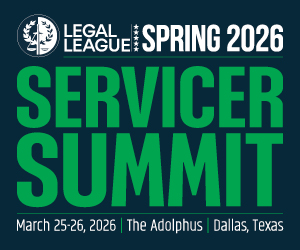This piece originally appeared in the October 2024 edition of MortgagePoint magazine, online now.
On July 10, 2024, the Consumer Financial Protection Bureau (CFPB) introduced a proposed regulatory amendment aimed at intensifying the obligations of mortgage servicers to assist borrowers prior to initiating foreclosure proceedings.
This proposal represents a substantial modification of existing regulations mandating that servicers exhaust all potential loss mitigation options before commencing foreclosure. The proposed rule introduces significant procedural safeguards that activate upon a borrower’s request for loss mitigation assistance.
These include prohibitions against dual tracking, a practice where servicers pursue foreclosure while simultaneously engaging in loss mitigation and restrictions on the fees servicers may impose during the review process. Additionally, the rule mandates enhanced disclosure requirements and obligates servicers to offer communication options in multiple languages.
The CFPB then solicited industry feedback on several aspects of the proposed rule, including its implications for the use of borrower credit data, the reporting practices of servicers, and the potential introduction of a special code to flag mortgages under loss mitigation review.
Background and Evolution of the Regulatory Framework
The proposed regulation is derived from the demonstrated efficacy of streamlined loan modifications observed during the COVID-19 pandemic, aiming to establish these processes as a permanent fixture. This initiative extends the regulatory framework developed in response to the foreclosure crisis between 2006 and 2014, during which the CFPB enacted the 2013 Mortgage Servicing Rules under the Real Estate Settlement Procedures Act (RESPA) and Regulation X. These rules mandated that mortgage servicers assess borrowers for all viable loss mitigation options within a reasonable period following the receipt of a complete loss mitigation application.
During the COVID-19 pandemic, mortgage delinquencies surged to levels not witnessed since the foreclosure crisis. In response, the CFPB issued an interim final rule on June 30, 2020, allowing servicers to offer loss mitigation options without the need for a complete application. This regulatory flexibility was further extended with additional rules in 2021, which enabled quicker enrollment of borrowers into streamlined loan modifications without the prerequisite of a full application process.
Expanded Obligations for Mortgage Servicers
The proposed rule seeks to amend and expand the 2013 regulations by imposing new requirements on servicers when borrowers seek assistance during periods of financial distress. Once a borrower requests loss mitigation assistance, the servicer must ensure one of the following procedural safeguards is satisfied before proceeding with foreclosure or imposing certain fees: (1) the borrower is deemed ineligible for any loss mitigation options; or (2) the borrower has failed to communicate with the servicer for at least 90 days despite the servicer’s efforts.
A notable aspect of the proposal is the extension of foreclosure and fee protections throughout the loss mitigation review cycle, until either the borrower has become current on their payments or one of the procedural safeguards has been met. The CFPB anticipates that these measures will incentivize servicers to conduct loss mitigation reviews with greater expediency and accuracy.
Clarifications and New Definitions
The proposed rule introduces and defines the term “loss mitigation review cycle,” delineating it as the continuous period starting when a borrower requests loss mitigation assistance, provided such a request is made at least 37 days before a foreclosure sale. This cycle continues until a servicer implements a solution that brings the borrower’s loan current or satisfies one of the procedural safeguards. The rule also broadens the scope of what constitutes a “request for loss mitigation assistance,” ensuring that any communication from a borrower, oral or written, through customary channels, can trigger the procedural protections against foreclosure.
Prohibition on Dual Tracking and Additional Fees
The rule explicitly prohibits the practice of dual tracking, mandating that foreclosure activities cease as soon as a borrower requests loss mitigation assistance and continues throughout the entire review cycle. Moreover, with the exception of late fees, servicers would be barred from accruing additional charges or penalties during this period, which could result in servicers bearing the cost of third-party services related to delinquency management, such as property inspections.
Language and Communication Requirements
In recognition of the diverse linguistic needs of borrowers, the proposed rule requires servicers to provide translated communications in Spanish and other languages, both in written and oral form, upon request. This provision extends to borrowers who were marketed loans in a language other than English, ensuring they receive relevant loss mitigation communications in the same language.
Conclusion
The proposed rule, if adopted, would significantly enhance the obligations of mortgage servicers in assisting distressed borrowers by requiring them to exhaust all loss mitigation avenues before proceeding with foreclosure. It also aims to provide borrowers with meaningful opportunities for relief but may also impose additional costs on servicers and potentially delay foreclosure proceedings, thereby affecting the enforcement of mortgage obligations. Considering that these are the first substantial revisions to the Mortgage Servicing Rules in eight years, the proposed rule could lead to significant shifts in industry practices, necessitating the investment of time and resources as servicers work toward compliance with the new requirements.
With the public comment period still open, it is crucial for servicers, investors, trade associations, and their counsel to thoroughly review the CFPB’s proposal to assess its potential impact on their operations. Additionally, these parties should strongly consider whether they should contribute public comments or provide data that could assist the CFPB in refining the amendments to Regulation X. Submitting comments could be a vital step in ensuring that the CFPB receives the necessary feedback on the proposed rule and its calls for data and other pertinent information.
The CFPB’s call for comments reflects the agency’s ongoing efforts to balance borrower protections with industry concerns and it is anticipated the CFPB will take several months to review public comments and make revisions before issuing the final rule later this year or in early 2025. The implementation of the Regulation X changes is expected to become effective nine to 12 months following the finalization of the rule.









